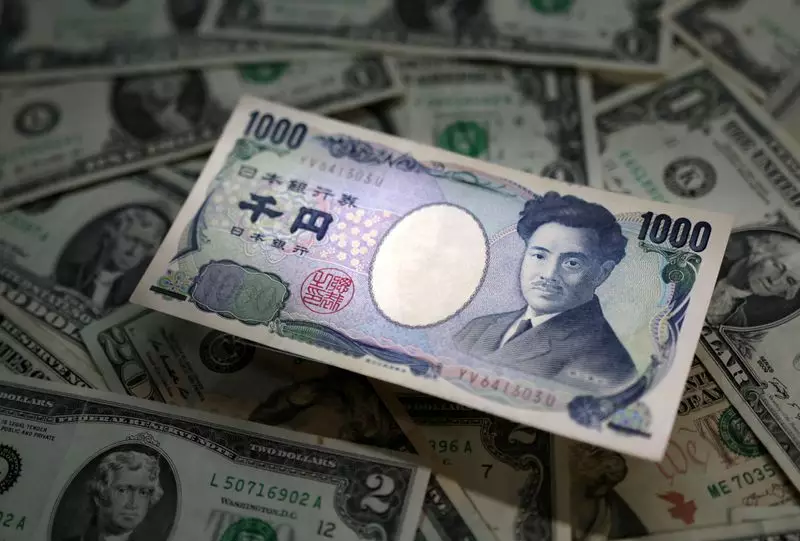In the world of foreign exchange, currency values often reflect the underlying economic and political conditions of their respective nations. The recent political developments in Japan, particularly the outcome of the national elections, have stirred significant uncertainty within the financial markets. The yen has found itself languishing near a three-month low against the dollar, highlighting the repercussions of Japan’s shifting political landscape. This article will analyze the effects of Japan’s parliamentary elections on the yen, the strength of the dollar, and what lies ahead for these currencies amid ongoing economic data releases and geopolitical factors.
Following the weekend elections, the Japanese yen experienced a notable decline, plummeting to its lowest level since July at 153.885 yen per dollar. Although it managed a slight recovery, closing at 153.12 yen for the dollar, the sentiment around the currency remains fraught with apprehension. The political instability arising from the ruling coalition’s loss of a parliamentary majority has led analysts to forecast a period of coalition negotiations, further deepening uncertainty about Japan’s future fiscal and monetary policy.
Carol Kong, a currency strategist at Commonwealth Bank of Australia, pointed out that the prospects for looser fiscal policy under the newly emerging government could exert upward pressure on the dollar/yen exchange rate. As Japan’s Liberal Democratic Party and its coalition partner, Komeito, secured 215 seats—falling short of the 233 needed to command a majority—the potential for shifts in policy direction raises the stakes for traders. This could lead to a strengthening of the dollar against the yen in the coming weeks as market participants adjust to the evolving political climate.
In contrast to the yen’s struggles, the U.S. dollar is gearing up for its strongest monthly performance in two and a half years. The dollar index has surged approximately 3.5% against a basket of major currencies due to a string of robust economic indicators showcasing the resilience of the U.S. economy. Market speculations surrounding Republican presidential candidate Donald Trump’s potential election victory have further bolstered the dollar. Investors perceive Trump’s fiscal policies—especially with respect to tariffs, taxes, and immigration—as inflationary. These factors typically boost dollar demand while exerting pressure on bond markets.
As traders anticipate significant economic data releases later in the week, including the core personal consumption expenditures price index and the nonfarm payrolls report, the dollar’s trajectory may experience fluctuations. According to Ray Attrill from National Australia Bank, while the forthcoming election looms large in influencing market sentiment, critical economic data will also play a pivotal role in shaping the dollar’s future.
The interplay between the yen and other currencies like the euro and pound also reveals broader trends in the forex market. The yen is facing challenges not just against the dollar but is similarly struggling against the euro and the British pound, hovering near three-month lows. As the Bank of Japan prepares to announce its monetary policy decision, expectations suggest that interest rates will likely remain unchanged. This is expected to contribute to a weaker yen sentiment as traders perceive limited incentive for the BOJ to alter its course amidst the prevailing political uncertainty.
Conversely, the euro and pound showed slight resilience against the dollar, with minimal fluctuations noted. The euro appreciated by 0.05%, while the pound rose by 0.03%. However, the Australian dollar faced downward pressure, hitting its most vulnerable point in over two months. As regional currencies react to political shifts and economic developments in the U.S., they highlight the interconnected nature of global forex markets.
As the market grapples with Japan’s political upheaval and the United States’ economic resilience, the currency landscape presents both challenges and opportunities. The fate of the yen remains uncertain, contingent upon the unfolding political dynamics and the Bank of Japan’s responses. Meanwhile, the dollar stands poised to benefit from solid economic data and possible shifts in U.S. leadership. Investors will need to remain agile in their strategies, adapting to the nuances of geopolitical events and economic releases in this ever-evolving landscape. The coming days will likely prove pivotal for both the yen and the dollar, as traders position themselves for potential shifts in monetary policy and fiscal strategies around the globe.

